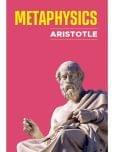One of the most profound and influential works in Western philosophy, Metaphysics is Aristotle's exploration of the nature of existence, reality, and the fundamental principles that underlie all things. In this groundbreaking text, Aristotle delves into questions about being, substance, cause, and the ultimate nature of reality. Through a series of inquiries, he seeks to understand what "being" means and investigates the causes that bring things into existence, examining not only the physical world but also the metaphysical structure of the cosmos.
The work is famously known for introducing Aristotle's theory of the "four causes"—material, formal, efficient, and final—and for discussing the concept of "substance" as the core of reality. He addresses concepts like potentiality and actuality, exploring how change occurs and what it means for something to exist. Aristotle also introduces the idea of the "unmoved mover," a necessary and eternal being that causes all motion and change in the universe without itself being moved.
Metaphysics lays the foundation for much of later philosophical thought, influencing thinkers from the Middle Ages to the present day. With its complex inquiries into existence and the nature of reality, Aristotle's Metaphysics is a cornerstone of both philosophy and science, inviting readers to engage with some of the deepest questions about life, the universe, and everything that is.


